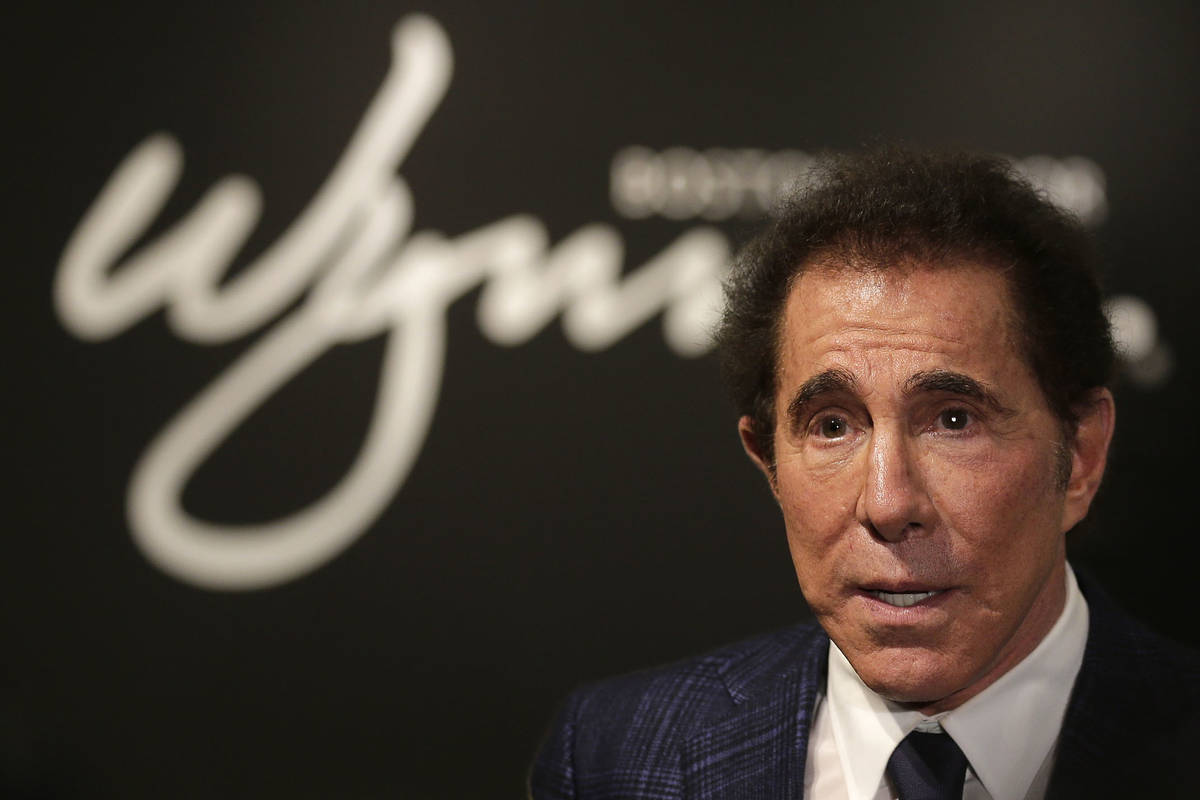Nevada Supreme Court sides with Steve Wynn in defamation case
The Nevada Supreme Court has sided with former casino mogul Steve Wynn in his ongoing defamation lawsuit against The Associated Press.
Wynn filed a defamation lawsuit against The Associated Press in 2018, accusing the news agency of publishing false statements with actual malice. The decision reverses the Nevada District Court’s 2018 dismissal of the case.
The district court is now set to evaluate the AP’s anti-SLAPP motion to dismiss, according to the opinion.
“Wynn is pleased with the en banc decision from the Nevada Supreme Court and looks forward to vindicating his reputation,” said Tammy Peterson of Peterson Baker PLLC, a litigation firm that represents Wynn in the case.
Lauren Easton, director of AP media relations, said the organization is reviewing the court’s decision.
Claims of false allegations
In February 2018, the Las Vegas Metropolitan Police Department held a news conference revealing that two women filed complaints alleging that Wynn had sexually assaulted them — one in Las Vegas, the other in Chicago.
Wynn stepped down as CEO and chairman of Wynn Resorts that month after multiple allegations of sexual misconduct and sexual harassment. He has maintained that the allegations against him are false.
After reading a Review-Journal article summarizing the news conference, AP reporter Regina Garcia Cano requested copies of the citizens’ complaints from the police department under the Nevada Public Records Act.
One of the women, Halina Kuta, told police in her complaint that she had Wynn’s child after he raped her in her Chicago apartment in the early 1970s. Cano’s AP story was based on the police report.
In March, a Clark County District Court judge ruled Kuta’s report to Las Vegas police as false and defamatory.
Wynn’s defamation lawsuit against the AP claimed the Chicago allegations were false and improbable on their face, and it accused the AP of intentionally describing the contents of the underlying report in an “incomplete and unfair manner.”
The AP moved to dismiss the case, arguing that it had immunity through the fair report privilege because the article fairly reported the allegations in an official police report.
The company also argued to dismiss the lawsuit under Nevada’s anti-strategic lawsuit against public participation statutes, also referred to as an anti-SLAPP motion, which is meant to prevent lawsuits from interfering with someone’s freedom of speech. The news organization claims the article was a good-faith communication and an issue of public concern.
Reversing the district court’s dismissal
The district court dismissed Wynn’s defamation complaint in 2018, saying the fair report privilege shielded the AP because it reported on a public record. Wynn appealed.
His legal team argued the fair report privilege does not apply to the AP because it described a citizen’s complaint that merely recorded the complainant’s allegations without any further action, which would not qualify as a report of an official action or proceeding. On Thursday, the Nevada Supreme Court said it agreed.
“We hold that a news article reporting on the contents of a citizen’s complaint to the police — which was neither investigated nor evaluated by the police — is not a report of an official action or proceeding for which the fair report privilege provides an absolute defense,” the opinion from Justice Elissa Cadish said.
It goes on to say the fact that Metro turned over the complaint does not make the article fall under the fair report privilege.
Contact Bailey Schulz at bschulz@reviewjournal.com. Follow @bailey_schulz on Twitter.





























